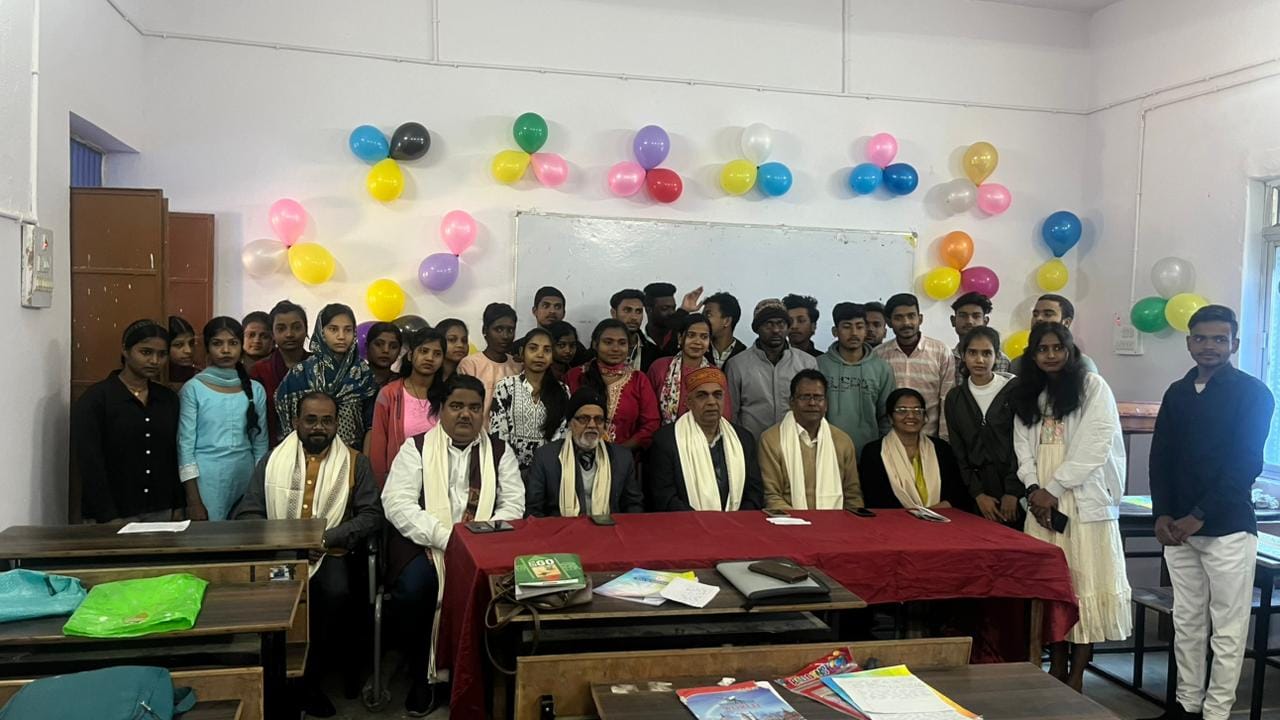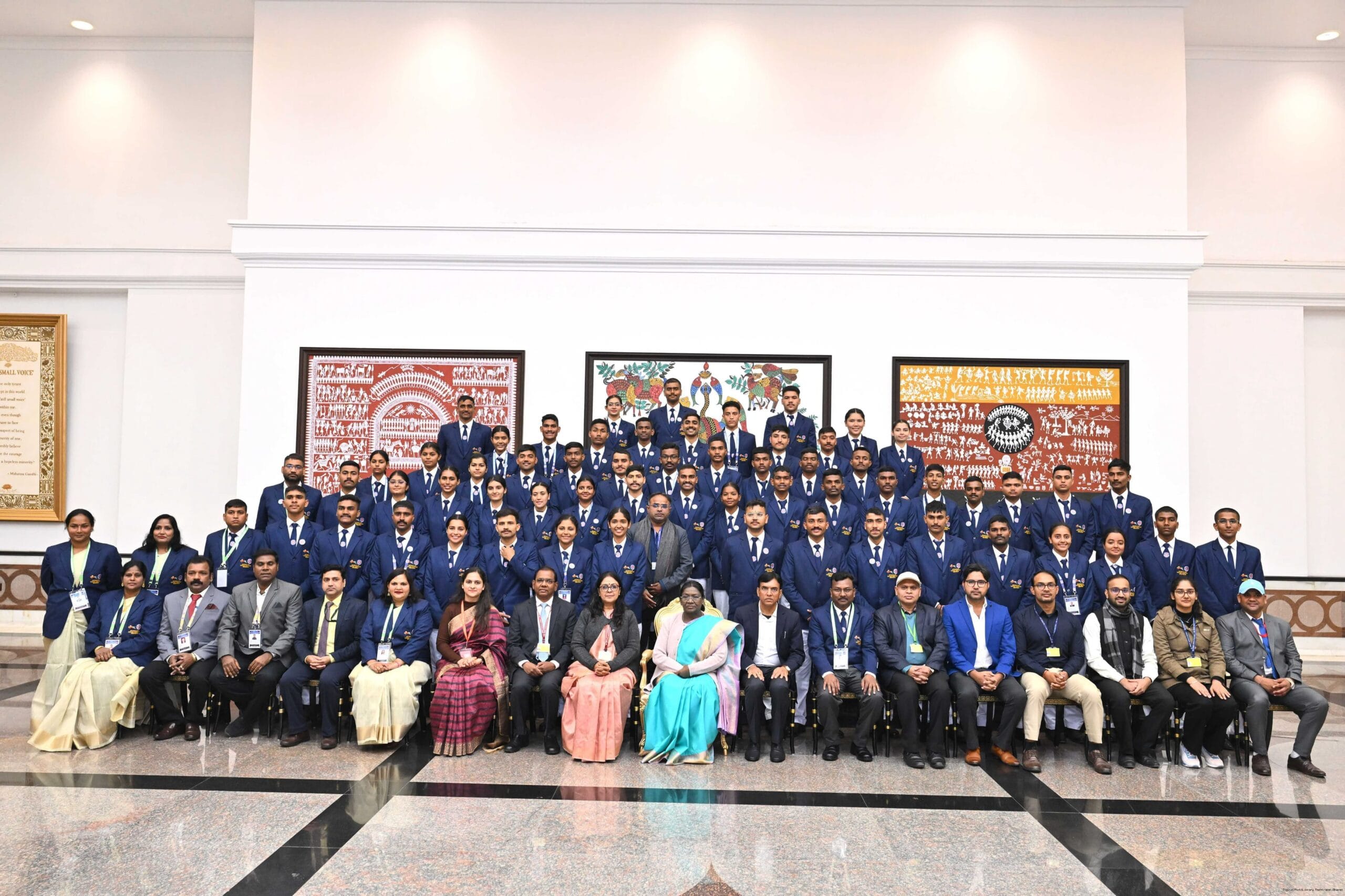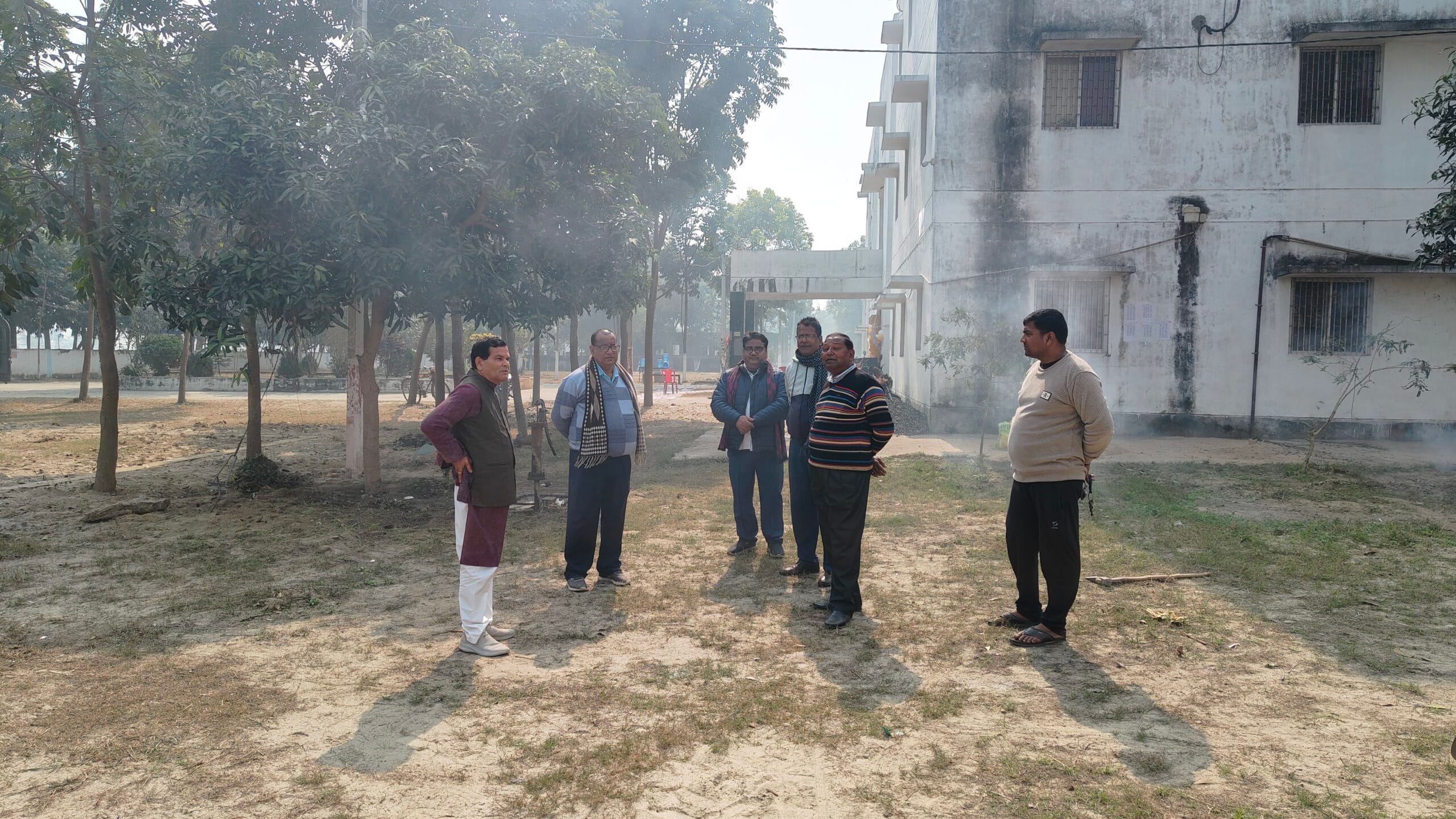First of all I would like to thank organizer Darshan Parishad, Bihar and T. P. College, Madhepura for inviting me to this landmark International Webinar.
Respected,
Honorable Vice-chancellor, B. N. Mandal University Madhepura, who is also Chief Patron of this webinar Prof. Gyananjai Dwivedi and Principal, T. P. College, Madhepura, as well as Patron of this webinar, Prof. K P Yadav.
Important speakers of this webinar
Dr. Kashinath Dhurke, Associate Professor , Department of Chemistry, NIT Warangal
Dr. Prakash C Jha, Dean of School of Applied Material Science, Central University Gujarat
Dr. V. D. Tripathi, Head Department of Chemistry, M. K. College, LNMU, Darbhanga
Dr. Doc N. Arul Murugan, Associate Professor, KTH Royal Institute of Technology, Stockholm, Sweden 
Dr. Shymal Kishore, Chairperson of this webinar and General Secretary, Darshan Parishad, Bihar
Dr. Sudhanshu Shekhar, Convernor of this webinar and PRO & DR (Academic) BNMU, Madhepura
Dr. Anand Mohan Jha, Organizing Secretary of this webinar and Assistant Professor of Chemistry, BNMU, Madhepura
Today I’m going to share keynote speech about Sustainable Chemistry for the Future. I think we all agree that it is a time for change and this is why we sit and talk here at this landmark webinar.
We know that Chemistry is a key-determinant of science. It is key-determinant of health, food, energy, education and a condition to an adequate standard of living. It is a key for all sustainable development goals and must be now recognized and treated as such.
Our life is supported and enriched by an enormous variety of chemical products that have been invented by chemists and chemical engineers, and produced by the chemical industry. But at the same time, we have learned from the experiences of past decades countries are faced with environmental concerns including the unsustainable use of non-renewable natural resources, the degradation of ecosystems and the disruption of the environmental systems that support human life. The general public now expects chemists and chemical engineers to work to minimize and reduce adverse effects on human health and the environment associated with the production and use of chemical products.
Sustainable development is one of the most frequently used terms in today’s political debate. Our current understanding of sustainable development as a regulatory idea .It has been defined “Sustainable development is development that meets the needs of the present without compromising the ability of future generations to meet their own needs.” As a consequence, all our individual and political actions should be reflected in the light of their societal, economical and ecological sustainability.
This claim concerns every field of society, among them particularly chemistry and chemistry education. Both fields should reflect on how chemistry and chemistry education can contribute to more sustainability in our society today and in future.
For this reason, chemists and chemical engineers have a great influence on, and thus bear a responsibility for, protecting the global environment. To this end, a new concept of, or approach to, chemical technology is needed. “Sustainable chemistry” is a relatively new concept and scientific area that aims to improve the efficiency with which natural resources are used to meet human needs for chemical products and services. In doing so, it can contribute to achieving a cleaner, healthier, and sustainable environment and improving the image of chemistry as a problem solving science in society. In modern era teachers, chemists, scientists, industrialist frequently used new chemistry like green chemistry, sustainable chemistry. But there is minor difference
Green chemistry has a longer history, with principles established in the 1990. According to the US Environmental Protection Agency, “Green chemistry is the design of chemical products and processes that reduce or eliminate the generation of hazardous substances.”
“The term ‘sustainable chemistry’ has been introduced more recently in 2004.
Sustainable chemistry … seeks to improve the efficiency with which natural resources are used to meet human needs for chemical products and services.
Sustainable chemistry encompasses the design, manufacture and use of efficient, effective, safe and more environmentally benign chemical products and processes.
Sustainable chemistry … stimulates innovation across all sectors to design and discover new chemicals, production processes, and product stewardship practices that will provide increased performance and increased value while meeting the goals of protecting and enhancing human health and the environment.
Sustainable chemistry can ensure optimum eco-efficiency in everything we do, both individually and as a society.
Sustainable chemistry also means protecting and extending employment, expertise and quality of life.
One of chemistry’s contributions to meeting the challenge of more sustainability in the development of our society is the promotion of a sustainable chemistry, in research and industrial production. Under the name of green chemistry (or in Europe also sustainable chemistry) a lot of effort has been undertaken to make future chemistry less poisonous and less hazardous. Green chemistry aims at making chemistry more energy efficient, at reducing waste disposal, and/or producing innovative products with less consumption of natural resources. Alternative processes and reaction pathways are designed, new materials and products are developed contributing to meet our needs today, but with taking more care of the interests of future generations.
Modern chemistry education is challenged by both the political aim of a sustainable development of our society in general as well from the call for green chemistry strategies in chemical research and industry in particular. School chemistry education should promote competencies of the young generation to become scientifically literate. This means chemistry education has to contribute to making students capable of actively participating in society. Competencies need to be promoted to allow students to understand and participate in societal debate about applications of chemistry and technology. One prerequisite is that students should achieve substantial chemistry knowledge in the context of respective sustainability issues to understand the underlying developments, alternatives and dilemmas. But, subject matter knowledge will not be enough. The students as future citizens also need to learn how societal debate about questions related to chemistry, industry and the environment functions as well as develop skills to involve themselves together with others in the societal processes of democratic decision making.
But this is only one side of the coin. Society can only decide about alternatives for raising sustainability in chemistry related developments and businesses if there are any. Future chemists and chemical engineers need to learn what a more resource efficient and environmentally friendly chemistry for the future might look alike. That means the ideas of a green chemistry should become part of their training from the very start. Students of chemistry programs at university should be guided to develop a deep consciousness of the importance of sustainability strategies in chemistry research and industry, and also to develop knowledge and skills to operate them.
-Fields of study are using environmental issues as a context for chemistry education, using the debate about plastics as a socio-scientific issue for chemistry education, or making the analysis of the environmental impact of chemical synthesis a part of an organic chemistry course in upper secondary schools. Another set of papers will reflect the role of sustainability issues and green chemistry in higher education. These papers focus on both changing the curricula towards embedding explicit lessons on sustainable development in higher chemistry and chemical engineering education, but also on how to put the principles of green chemistry into practice in higher chemistry teaching. The latter step can be achieved, for example, by incorporating alternative reagents or making technical problems from the sustainability debate a context for higher chemistry learning.
Since 2005 we have been living in the UN World Decade of an Education for Sustainable Development which will end in 2014. The ground for a broader application seems to be prepared. Anyhow, working on a sustainable future is an ongoing process. Concerning this, we hope that this themed issue will inform the discussion and will help to strengthen and motivate chemistry education’s contribution to a more sustainable future.
Sustainable chemistry provides a robust framework bringing together research, development & innovation sectors from academia. Sustainable chemistry inspires a changes of pace & new mindset that society needs in order to become more sustainable smart & inclusive.
Sustainable chemistry for the future
Sustainable chemistry has a huge part to play in solving societies current & future challenges:
- Innovation from chemical sector will be essential to sustainable low carbon economy
- Sustainable chemistry also has challenges to protect & extend employment, expertise & quality of life.
- Innovation to needed to stimulate a competitive knowledge
- Sustainable chemistry must be problem shooter & acceptable to the society.
- It should be economically sustainable.
- It must address clear societal needs, environmentally sound
& economically viable. - Sustainable chemistry to solve global challenges.
A lots of Thanks again

















